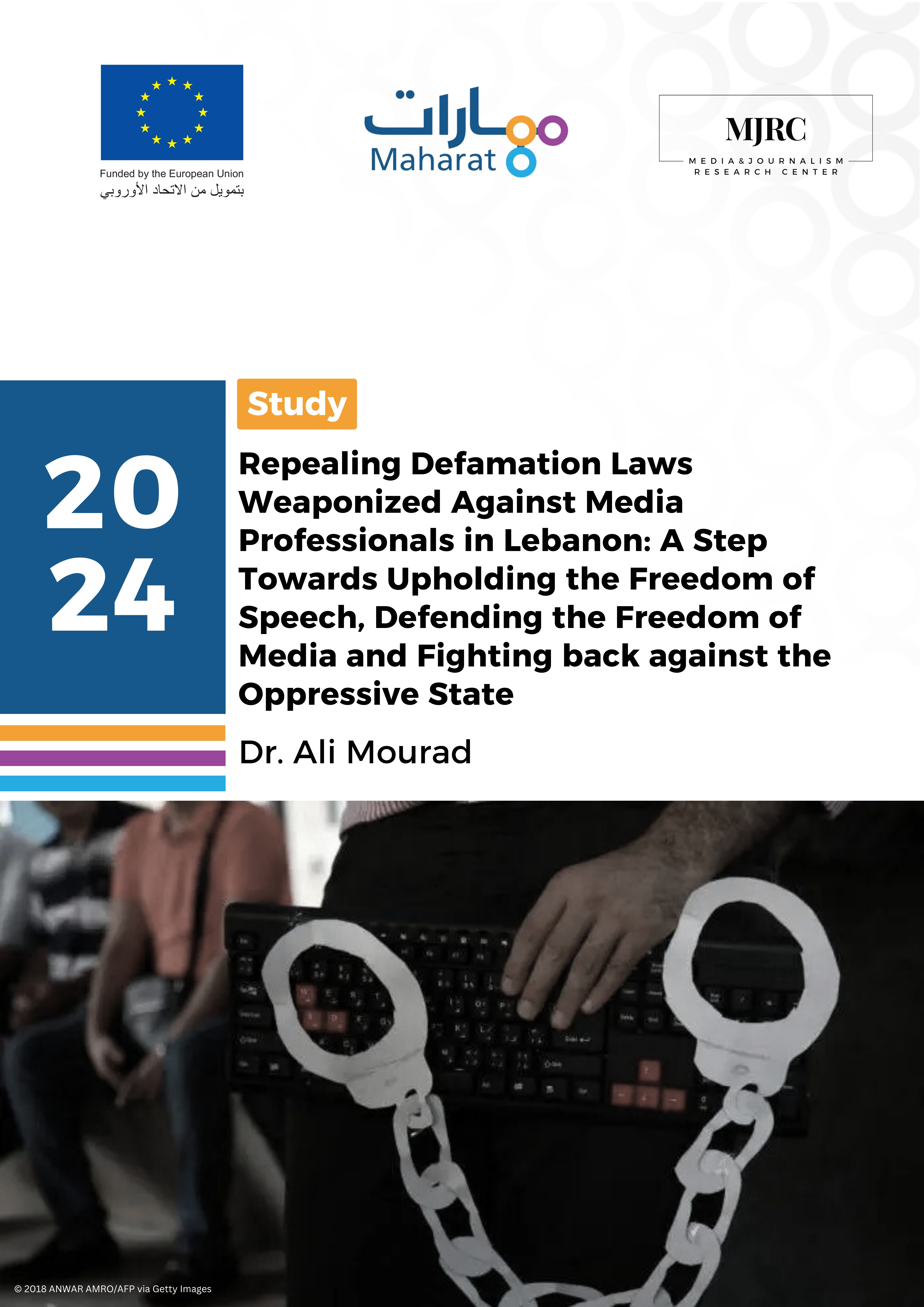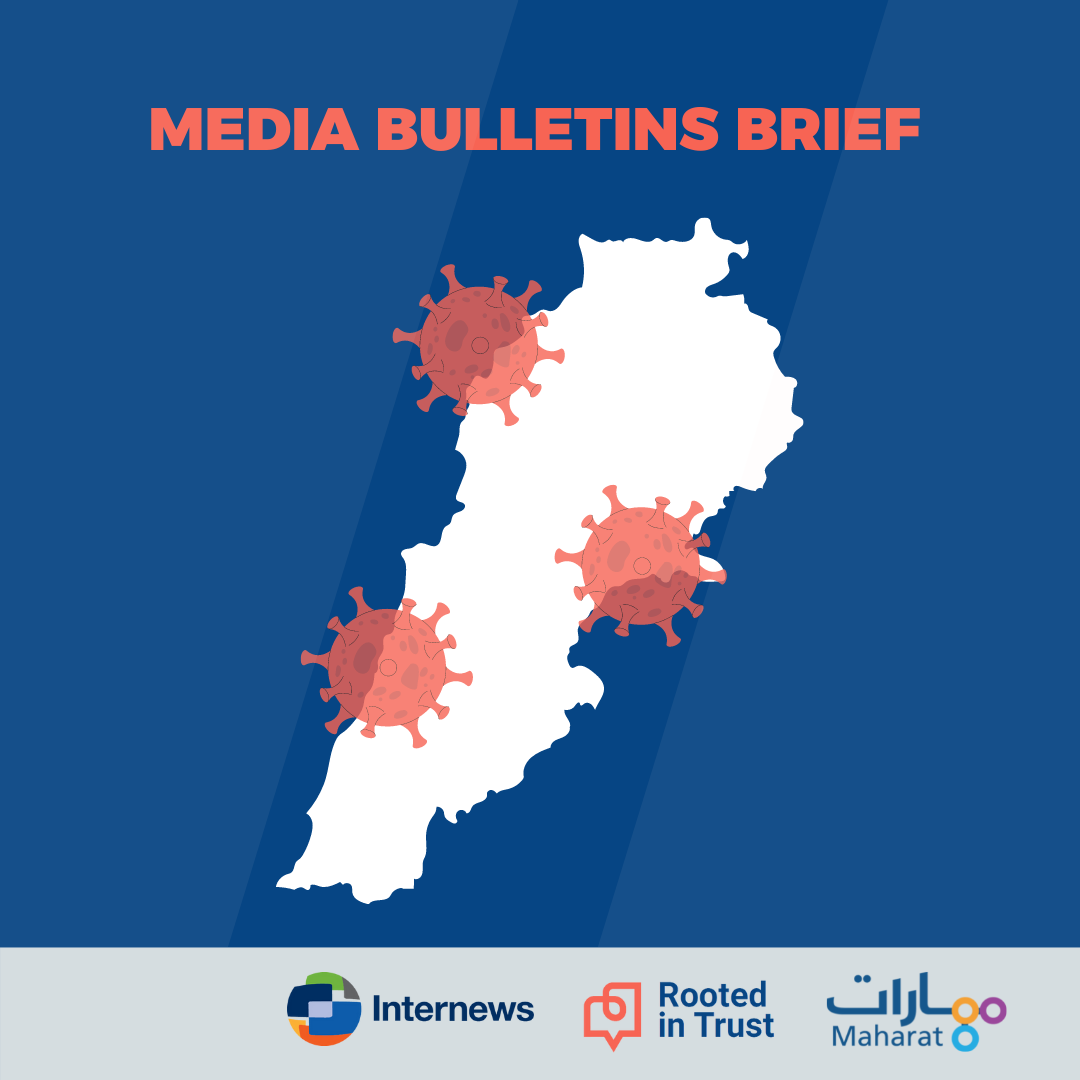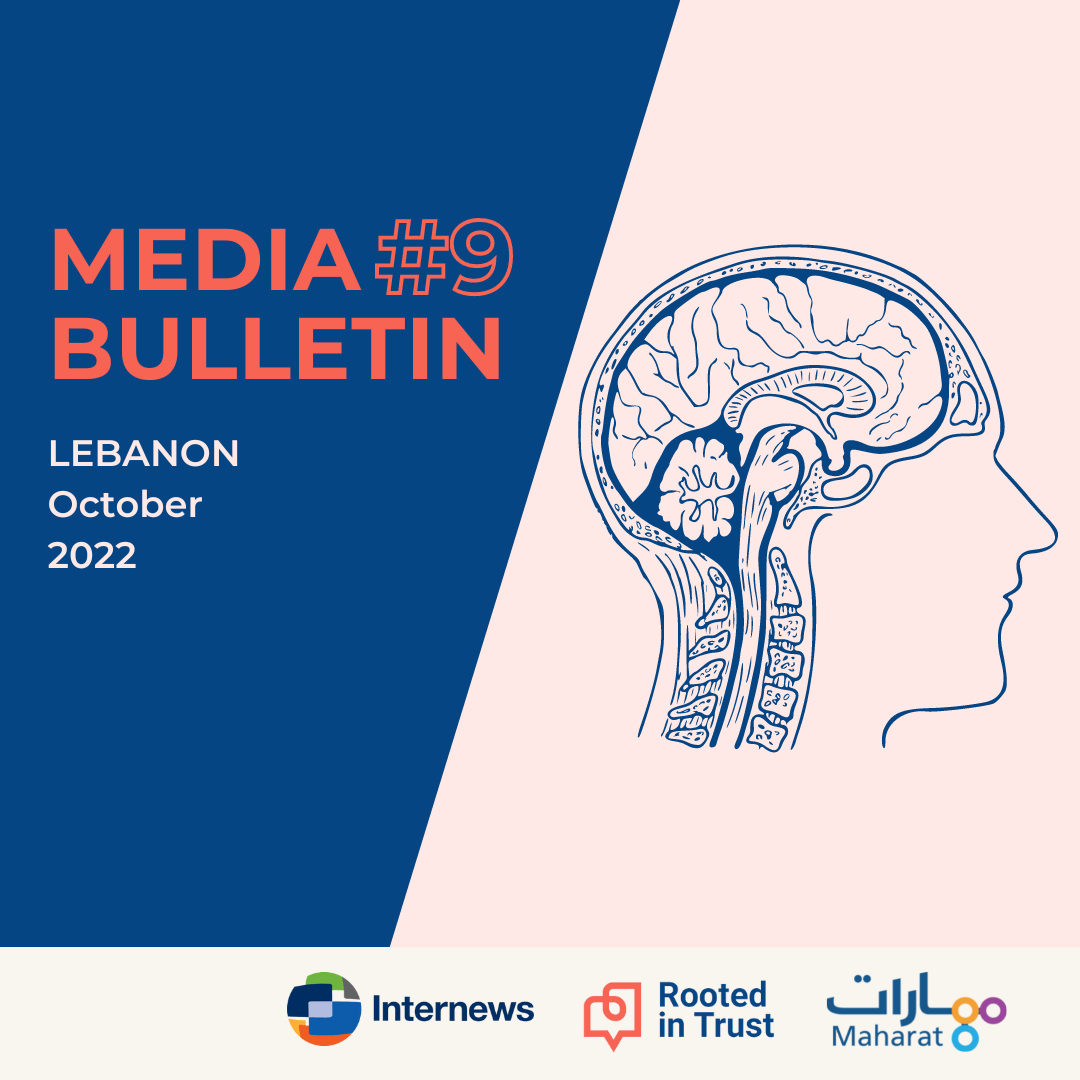
Decriminalizing Speech Offenses
"Repealing Defamation Laws Weaponized Against Media Professionals in Lebanon: A Step Towards Upholding the Freedom of Speech, Defending the Freedom of Media and Fighting back against the Oppressive State," a study prepared by Dr. Ali Mourad, aimed to analyze the Lebanese legislative framework and its contradiction with the constitution and international obligations, as well as analyze the escalating trend of arbitrary practices against journalists aimed at narrowing freedom of expression and the press, and analyze judicial precedents.
The paper documented several cases related to the situation of electronic freedoms, ranging from harassment and threats to criminalizing activities on social media and free writing in personal blogs. It presented successive violations against bloggers and journalists, with the absence of laws protecting internet freedom, which remains under the jurisdiction of criminal justice, as well as attempts at censorship and narrowing by the Cybercrime Bureau against bloggers and citizens.
The paper addressed the problematic issue of harnessing criminal laws as one of the main tools used by authorities to silence criticism in the country, especially criticizing the army, the president, and government officials. Despite laws dating back to the Ottoman and French colonial periods, existing since the early 20th century, evidence shows a significant increase in their usage. There is consensus among civil society institutions and journalists that the number of defamation cases has greatly increased in recent years, especially targeting expression of opinion on the internet.
This research paper aims to analyze the Lebanese legislative framework and its contradiction with the constitution and international obligations, as well as to analyze the escalating trend of arbitrary practices against journalists aimed at narrowing freedom of expression and the press and analyze judicial precedents. It also addresses the necessity of abolishing defamation crimes and expression offenses before criminal courts.
The study concluded that abolishing defamation crimes is a necessary step to ensure effective exercise of press freedom and journalism and included recommendations for legal and judicial reforms ensuring freedom of expression and journalism.
To access Dr. Ali Mourad's study:
Repealing Defamation Laws Weaponized Against Media Professionals in Lebanon
"Decriminalization of Defamation in the Context of Free Speech: A European Perspective", a study prepared by Dr. Andrei Richter from the Media and Journalism Research Center, examines the European experience of decriminalizing defamation. It explains the main international trends related to the use of criminal defamation legislation and its impact on journalists and freedom of the press, in addition to highlighting best practices in Europe. The study also presents the key regulatory standards for media activity, such as restrictions on government intervention, privacy protection, the right of reply, child protection, and support for European content in broadcasting, which are unified standards within the European Union.
To access Dr. Andrei Richter's study:
Decriminalization of Defamation in the Context of Free Speech: A European Perspective
The studies conducted by both Dr. Ali Mourad and Dr. Andrei Richter, as well as the conclusions of the seminar organized by Maharat on October 3rd, on criminal prosecutions against journalists and activists that limit their freedom of expression and criticism of public figures and institutions, were relied upon to prepare a standard setting document summarizing best practices regarding areas related to decriminalizing expression issues.
This document included recommendations to the authorities to comply with the standards of freedom of expression guaranteed in the constitution and international charters, and to enhance freedom of opinion and expression by abolishing criminal penalties related to defamation, insult, replacing criminal penalties with civil ones, and delineating the boundaries of freedom of expression clearly, avoiding ambiguity and arbitrariness, and refraining from using any vague terms. It also called for stopping criminal prosecutions in expression cases before military courts and enshrining the concept of public interest in criticizing public figures and authorities explicitly in the law.
As for the media sector, it encouraged critical discourse as necessary for a vibrant civil society and effective democracy. Moreover, it urged for pressure to abolish criminalization of defamation, insult, and disparagement in a media law proposal under consideration in the parliament, and the adoption of a modern law that respects the standards of freedom of expression.
From the international community level, it called for alignment with the position of the United Nations Human Rights Committee, which deemed that all countries should consider abolishing criminal defamation and that imprisonment is not suitable at all.
To access the standard setting document on "Decriminalizing Speech Offenses"
These studies are part of the media reform studies series under the Academic Exchange Program between Maharat foundation and Media and Journalism Research Center, as part of the "Media Reform to Enhance Freedom of Expression in Lebanon" project in collaboration with Legal Agenda and Media and Journalism Research Center, with the support of the European Union.





